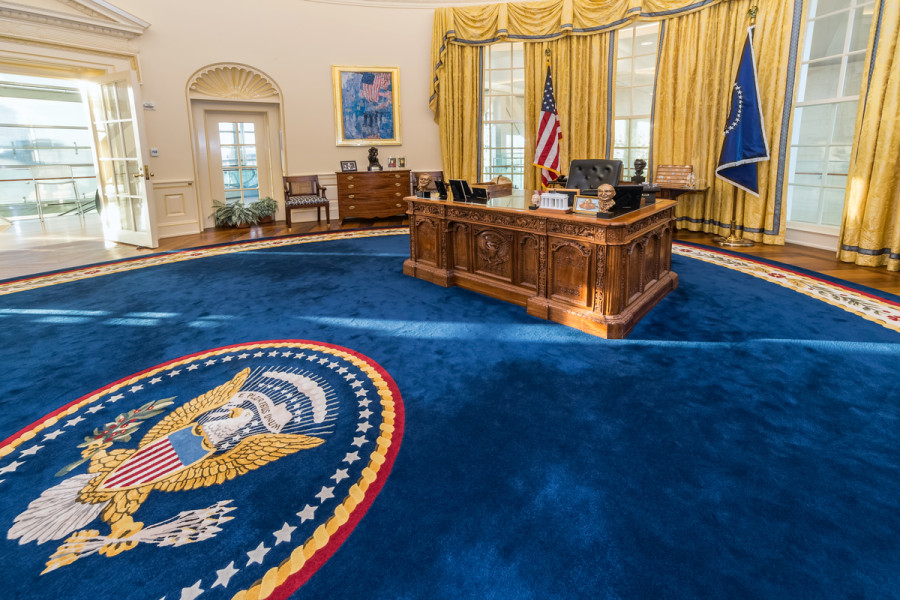Columns
Biden inauguration brings changes for Nepal
The new US administration has already shown signs of departing from the policies of the old one.
Sujeev Shakya
The inauguration of the US President Joe Biden on January 20 was, for the majority of the people around the world, a relief. Not only has the past four years been tortuous for the United States, but it has encouraged many self-centred politicians globally to pursue inward-looking authoritarian actions with complete disregard to fundamental principles of equity and justice. The inauguration speech provided a sense of calm and a direction that we will get back to a world of global cooperation through multilateralism, respect of human rights, social inclusion and the need to mitigate climate change challenges. Definitely, Nepal and Nepalis will be impacted by this in four meaningful ways.
Protection of minority rights
One of the biggest challenges of the last four years has been the majority in power dominating the minority. Black Lives Matter became not only a movement in America, but it opened up discussions on the South Asian hypocrisy of supporting this as an aggrieved party in the US but practising exclusion in their own communities. In Nepal, the issues of the Dalits and other marginalised groups, along with women, that was brushed aside will have an impact on bilateral relations, investments and development assistance. President Biden has appointed a team that is perhaps the most diverse and inclusive in US history and his administration would surely like to see that taken as an example elsewhere in the world. In Nepal, the culture of male domination and upper-caste patriarchy will come under a scanner. We will go back to the discourses of 2008 to 2015, and the issues of Madhes and Janajatis will resurface.
Climate change
The new administration’s commitment to battle climate change has been very clear. Closer to home, the fragile ecology has been in discussion now for a half a century. Air pollution remains a major challenge with uncontrolled exploitation of natural resources by politically aligned cartels. Nepal has the opportunity to lead the discourse. After four years of hosting Himalayan Consensus Summit, one of the Advisory Board members, Prof Mahendra P Lama, created a concept around the Sagarmatha Dialogue that the Government of Nepal decided to host. This is one issue that has been trampled on by the current political fiasco. Whoever will come to lead the government, this will have to be rekindled. The geopolitics of the region is tied to the impact of the challenges of climate change; when natural disasters and long term problems occur, there are no political boundaries. Nepal has again an opportunity to take a leadership position in the region.
Nepalis in the US
One of the key decisions of the new administration has been to provide citizenship to 11 million undocumented migrants. Nepalis form a good number of them. A Pew Research Report indicated there were about 150,000 US citizens of Nepali origin in 2015, with 83 percent having lived there for less than 10 years. Since the 2015 earthquake, 9,000 Nepalis were given residency in the US under a Temporary Protected Status, but the previous administration was not interested to convert it into citizenship. Let us not forget that every Nepali who becomes a US citizen adds more family members. The Diversity Visa (DV) programme administered by the US government saw more than a million Nepalis in 2019 and 2020, or one-tenth of the eligible population, wanting to become US citizens. The US has been a sought after destination for higher education with Nepal featuring among the top 10 source countries of students for many years. The US still continues to be the land of opportunity for the young Nepalis for whom Kathmandu is just a transit point. There will be more people wanting to study or migrate to the US than ever before as the political situation becomes even more complicated.
Nepal and the US
The relationship between Nepal and the US has been challenging since the grant under the Millennium Challenge Corporation (MCC) was made into a geopolitical issue. When then-Secretary Pompeo visited South Asia, he skipped Nepal—just as a statement from Nepal accused Washington of attempting an ‘imperialist coup’ in Venezuela. US investments in Nepal have been at a historic low due to the Nepal government’s disinterest in encouraging foreign investments and the control of local political business cartels over the government. Tourists from the US as a percentage of total tourists have declined and so has people to people exchange. The Peace Corps that was suspended during the insurgency restarted in 2012 and the network of Nepal and Nepalis has a lot to do with the thousands of US citizens who became Nepal’s biggest and best ambassadors. However, the government continues to make the work of foreign volunteers in Nepal difficult from the perspective of visas and approvals. For Nepal, there is an ‘open moment’ to recalibrate ties with the US and for Nepalis, there is another opportunity to engage at the people to people level with the US. We can only hope for the best.




 8.22°C Kathmandu
8.22°C Kathmandu















